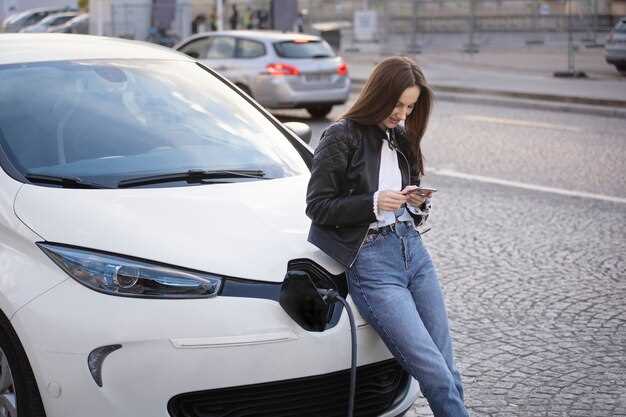
The automotive industry is undergoing a significant transformation as electric vehicles (EVs) become increasingly mainstream. Audi, a brand synonymous with luxury and performance, is leading the charge with its innovative electric models. As we look ahead to 2025, Audi’s commitment to sustainable mobility is set to redefine the driving experience, combining cutting-edge technology with eco-friendliness.
In 2025, Audi plans to expand its electric lineup, introducing several new models that promise to captivate consumers. These vehicles will not only showcase Audi’s signature design and engineering prowess but will also integrate advanced technology for enhanced safety and driving pleasure. The upcoming electric models are expected to leverage the brand’s expertise in performance, ensuring that drivers can enjoy the thrill of the road while minimizing their carbon footprint.
As consumers increasingly prioritize sustainability, Audi’s electric offerings are positioned to meet the demands of the modern driver. With a focus on performance, range, and charging convenience, these models will set a new benchmark in the EV market. Enthusiasts and eco-conscious buyers alike will have much to look forward to as Audi rolls out its highly anticipated electric lineup in the coming years.
Key Features of Upcoming Audi EVs and What to Expect

Audi’s commitment to electric vehicles (EVs) is evident in their upcoming models, each designed to push boundaries in technology, performance, and sustainability. One of the most anticipated features is the advanced battery technology, aimed at increasing range and reducing charging times significantly. Expect to see improvements in lithium-ion batteries, potentially using new chemistries that enhance energy density and longevity.
The integration of cutting-edge infotainment systems will revolutionize the driving experience. Upcoming Audi EVs will feature larger, high-resolution displays along with improved voice recognition and connectivity options. Enhanced artificial intelligence algorithms are expected to personalize the driving experience, making it more intuitive for drivers and passengers alike.
Another critical aspect will be the introduction of quattro all-wheel drive systems specifically tailored for electric powertrains. This will enhance traction and handling, providing drivers with a thrilling yet controlled performance, regardless of road conditions. Additionally, the next generation of Audi EVs may incorporate advanced autonomous driving capabilities, leveraging extensive sensor technologies and software advancements to enable more self-driving features.
Audi will also emphasize sustainability in its design and manufacturing processes. The use of recycled materials and eco-friendly production techniques will be a highlight in their upcoming electric models, aligning with global efforts toward a more sustainable future. Expect to see a focus on reducing the carbon footprint across the lifecycle of these vehicles.
Finally, the aesthetic appeal ofAudi EVs will not be compromised. Sleek, modern designs will feature aerodynamic shapes that enhance efficiency and visual appeal. Expect a range of striking color options and customizable elements, allowing buyers to personalize their electric vehicles without sacrificing style.
Pricing and Availability: How Much Will the 2025 Electric Audi Models Cost?
The 2025 lineup of electric Audi models is anticipated to offer a range of price points to cater to different market segments. Entry-level models, such as the compact Audi Q4 e-tron, are expected to start around $50,000, making them accessible to a broader audience. Mid-range offerings, such as the Audi Q6 e-tron, are likely to be priced between $60,000 and $80,000, given their upgraded features and larger battery capacities.
At the higher end, the luxurious Audi e-tron GT successor may see starting prices exceeding $100,000. This model will combine performance with cutting-edge technology, justifying its premium price tag. Additionally, limited-edition versions or performance variants may be introduced, potentially reaching even higher price points.
Availability is set to be staggered, with some models debuting earlier in 2025, while others may be released later in the year. Audi plans to expand its charging infrastructure in parallel with the rollout of these electric vehicles, ensuring that customers have the convenience of readily available charging options.
As demand for electric vehicles continues to grow, Audi aims to balance production with consumer needs, indicating that pre-orders might open well ahead of the official release dates. Interested buyers are encouraged to stay informed through Audi’s official channels for the most up-to-date pricing and availability announcements.
Charging Technology and Infrastructure: Ensuring Seamless Electric Driving

The transition to electric vehicles (EVs) heavily relies on innovative charging technology and a robust infrastructure. In 2025, Audi plans to enhance its EV lineup, making efficient charging solutions crucial for potential buyers. The charging ecosystem must accommodate a growing number of electric models while ensuring user convenience and accessibility.
Rapid charging technologies are transforming the electric driving experience. High-power chargers can significantly reduce charging times, allowing drivers to power their vehicles in minutes instead of hours. Audi aims to integrate ultra-fast charging capabilities in its future models, supporting both home and public charging stations to maximize efficiency.
Smart charging infrastructure plays a vital role in this evolution. Utilizing advanced software, Audi is partnering with charging networks to ensure seamless plug-and-play experiences for EV users. This includes features like real-time availability tracking, payment integration, and reservations for charging slots, eliminating uncertainties associated with electric driving.
Furthermore, dynamic load management systems will enhance grid stability by balancing the demand for electricity among multiple charging sites. This is particularly important as the number of electric vehicles on the road increases. Audi’s commitment to sustainability will extend to promoting renewable energy sources, further improving the ecological impact of EV charging.
Finally, with an expanding network of charging stations–both fast and level 2 options–Audi will aim to ensure that EV owners have ample opportunities to recharge. Partnerships with existing infrastructure providers and investment in new stations will be essential to creating a comprehensive charging network, thus ensuring that the shift toward electric driving is not only feasible but also enjoyable for consumers.
